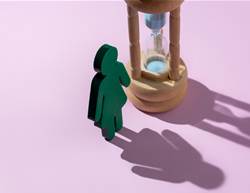1. Dry Mouth
Having a dry mouth may also be accompanied by difficulty pronouncing words and swallowing/eating dry foods. This is often brought on by medications (such as antidepressants, antihistamines and blood pressure drugs) and the symptoms usually disappear when the medication is changed. It’s important to be aware that dry mouth can increase risk of oral infections such as thrush as well as tooth decay.
What to do?
Dry mouth can be alleviated by frequent sips of water, or chewing sugar-free gum to stimulate saliva. Also try limiting your caffeine intake. There are also dry mouth toothpastes and mouth rinses which may help.
2. Burning mouth
This mainly affects women in their forties and fifties and is characterised by a burning sensation on the inside of the cheeks, tongue, gums, lips, palate and sometimes the throat. No-one knows exactly what causes burning mouth syndrome though there seems to be a correlation between symptom severity and hormonal changes during menopause possibly triggered by anxiety/depression.
What to do?
Sometimes this condition resolves itself and in other cases it can become chronic, and need medication.
3. Gum Disease
Hormonal changes at menopause increase the likelihood of developing gum disease. Symptoms include bleeding of the gums when brushing your teeth, change in the appearance of the gums (redness, puffiness or gums shrinking away from the teeth in places), bad breath or loosening of teeth.
What to do?
Practice good dental hygiene by brushing teeth for two minutes twice a day, followed by flossing. And have regular dental checkups. HRT may play a role. There are conflicting results regarding the effect HRT has on gum disease – in some women there are improvements and in others, no change.
4. Jaw shrinkage
All women experience some degree of bone shrinkage with age, which increases our risk of developing osteoporosis, or brittle bones. In severe cases, women may take medication to manage it and this could put them at risk of Medication-Related Osteonecrosis of the jaws or MRONJ. This can cause pain in affected areas, gum swelling and infection.
What to do?
The key is prevention – make sure you speak to your dentist before starting medication for osteoporosis, practice good dental hygiene, and have regular dental checkups.








